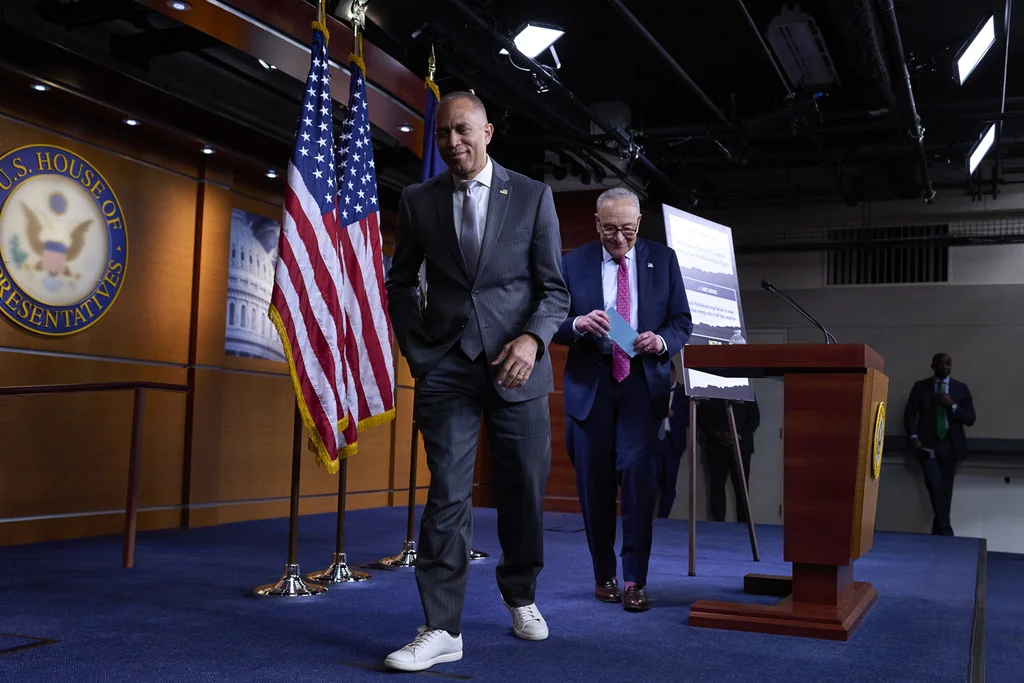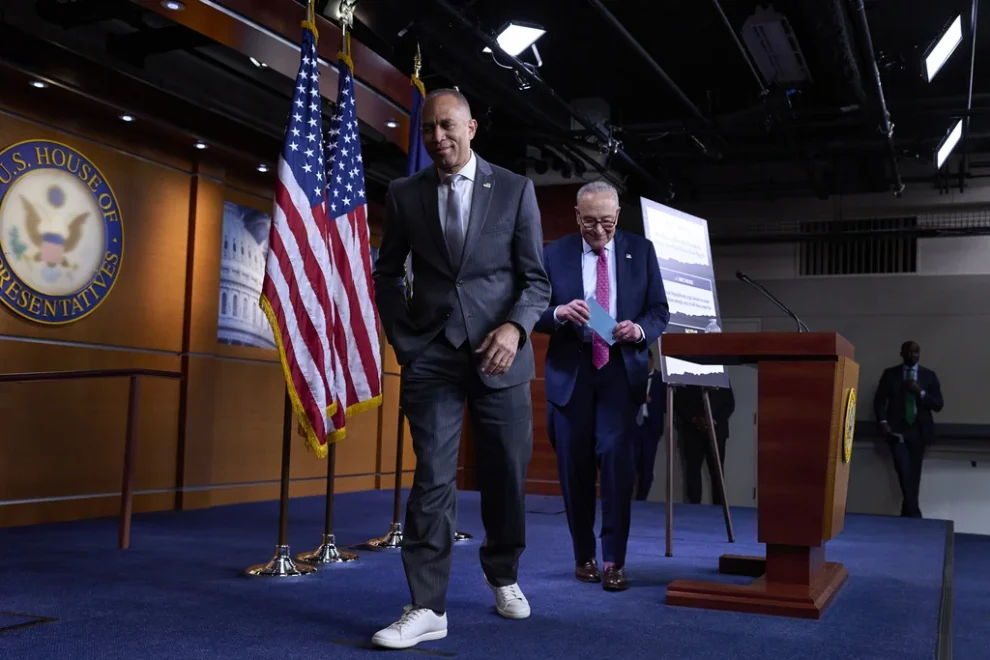Democrats have a daunting messaging task that’s nearly as colossal as President Donald Trump’s sprawling tax and spending bill.
The more than 1,000-page legislation, which touches on everything from Medicaid and taxes to artificial intelligence, food stamps, and gun suppressors, has Democrats scrambling to turn the public against a smorgasbord of policies they hope might derail delicate negotiations among Republicans.
Democrats are on a public relations blitz of near-daily press events to cycle through provisions tucked into the One Big Beautiful Bill Act, the backbone of Trump’s domestic policy agenda.
“This bill is chock full of garbage, so the more people know about it, the better,” Sen. Brian Schatz (D-HI) told the Washington Examiner. “And I don’t think we should be so fussy about one person talking about [the Supplemental Nutrition Assistance Program] and one person talking about tax cuts and one person talking about Medicaid. It all works, and we should scream it from the rooftops.”
In the last week, Senate Democrats hosted press conferences on the bill’s repeal of former President Joe Biden’s clean energy tax credits, extension of Trump’s first-term tax cuts that expire this year, crackdown on illegal immigration enforcement, policy effects on women, Medicaid cuts, and tax cuts for firearm suppressors. Some issues, such as Medicaid, were the subject of more than one event.
Senate Minority Whip Dick Durbin (D-IL) sees the portions that “resonate with the public” the most as changes to Medicaid and Obamacare that are projected to result in 16 million fewer people with health insurance, potential rural hospital closures from the Medicaid portion, and the scaling back of food stamp eligibility.
“There’s so many items in this 1,000-page bill,” Durbin told the Washington Examiner. “Those three things, I think, are the top visible issues. But there’s so many others.”
In the House, where Republicans passed their version of the bill last month, House Minority Leader Hakeem Jeffries (D-NY) previewed a “save our hospitals” week of action next week when the chamber is on recess. The Senate is in session and will continue to tweak the House bill.
“Hospitals will close if Republicans are successful in passing the GOP tax scam,” Jeffries told reporters, referencing proposed changes to provider tax credits that hospitals receive for Medicaid patients. “That is incredibly disturbing. Lives will be lost.”

Changes to Medicaid benefits and new work requirements will mean higher healthcare costs and less eligibility, creating a flash point in the broader debate over the bill. Democrats see the government-run healthcare program for lower-income Americans as a pillar of their messaging strategy, along with opposing the extension of tax cuts that are projected to benefit wealthier earners.
While Democrats have been unsuccessful in derailing Republicans so far, there’s evidence they could be chipping away at the overall proposal’s popularity, particularly Medicaid. Polling shows that the vast majority of Americans agree with the Democrats’ position on the program.
A Quinnipiac University survey this week showed that 53% of voters oppose the legislation. Less than a third support it, and 20% have no opinion. Medicaid is overwhelmingly popular, with 87% opposing cuts, including 77% of Republicans.
Medicaid is a point of major friction for Republicans in states with high Medicaid enrollment and who oppose changes that would essentially cut benefits or jeopardize hospital funding. Sen. Josh Hawley (R-MO), the program’s loudest conservative defender, vowed Friday to remain “in hourly contact with leadership” until changes are made.
Jeffries and Senate Minority Leader Chuck Schumer (D-NY) used a rare joint press conference to offer a tongue-in-cheek “second chance” to House Republicans, urging them to demand changes for items they were previously unaware of but now align with Democrats in opposing them. Schumer cited the bill’s repeal of green energy tax credits as a leading example.
GOP RALLIES AROUND ESCALATING BIDEN INVESTIGATIONS AS PARTY FEUDS ELSEWHERE ON POLICY
“If they really mean what they say, and they want to change the bill, this is their golden opportunity,” Schumer said. “Don’t throw the key away. Don’t shrug your shoulders a second time.”
Republican leaders hope to muscle the Senate’s revised version through the party’s slim majorities in both chambers and send it to the president’s desk by the July 4 break.
























